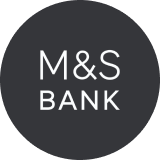What is an unsecured loan?
When a loan is unsecured, this means that a lender decides to give you an agreed sum of money without you having to provide any collateral to guarantee you’ll repay it.
Instead of asking you to offer up any assets you have, such as your house or your vehicle, the lender agrees to loan you the money you need on the basis that they think you’re a responsible borrower. This might be because you have a good credit score or you’ve demonstrated that you can pay back debts on time.
Offering customers this type of loan presents a risk to lending companies as you’re entering into an agreement without putting up any collateral. For this reason, unsecured loans may have higher interest rates than loans which are secured.
Things like personal loans and credit cards are usually unsecured, whereas mortgages and car loans are often secured, either against the product the loan was used to purchase or other assets of value you already own.
Unsecured loans can offer customers an alternative to some other personal finance products.
They can be taken out instead of:
· Secured loans – As mentioned earlier, secured loans require you to offer some collateral, whilst unsecured loans don’t. If you don’t have any assets of value which you could offer a lender, or there’s nobody with a good credit score who can co-sign on your application, an unsecured loan can be a solid alternative to a secured loan, despite being slightly more expensive in some cases.
· Credit cards – In most cases, credit card borrowing is unsecured. They enable you to borrow and spend cash up to a limit, but in doing so, you will usually be expected to pay interest on a balance which you carry on a month-to-month basis. If you’re looking for a loan which carries a fixed interest rate and a clear schedule for repayment, an unsecured loan may be a cost-saving alternative to taking out a credit card.
· Payday loans – Payday loans are offered on a very short-term basis, as you are normally required to repay them entirely on receipt of your next paycheck. Whilst they’re convenient due to the ease at which you can access them, payday loans tend to carry very high rates of interest.
If you already have some pre-existing debts, taking out this type of loan could be risky as borrowers who fail to pay could be liable for spiralling costs.
When you’re in need of a loan but are looking to avoid the hefty interest rates commonly associated with payday loans, taking out an unsecured personal loan could be a route towards accessing cash without the extortionate fees.
How much could an unsecured loan cost?
The overall cost of an unsecured loan you might take out can be influenced by many different things, ultimately meaning that there’s no standard price across the board.
One of the main factors that could impact an unsecured loan’s cost is the interest rate. Since unsecured loans are a higher risk for lenders as they don’t require a customer to put up any collateral, a greater interest rate is usually charged to counterweigh that risk. Interest rates for unsecured loans can vary, starting at around 6% but sometimes increasing to 36% or higher, depending on your credit history, among other factors.
Another thing to bear in mind is additional fees related to unsecured loans. On top of costs related to interest rates, some lenders add on extra, separate fees for customers taking out unsecured loans. For example, you might be asked to pay an origination fee, essentially meaning that there’s a cost for processing your application. Late payment fees, penalties for prepayment, and fees for insufficient funds to repay can also be added on by lenders.
Whilst these small costs may seem insignificant, the total sum can really add up for borrowers. Before taking out a loan, it’s essential to read the terms and conditions carefully to understand why the lender may charge extra and what for. By taking this easy step, you can plan for any extra costs and calculate the affordability of the loan overall.
What can an unsecured loan be used to pay for?
Unsecured loans are a versatile tool for personal finance that can cover a vast range of different costs that crop up in day-to-day life.
A common use for this type of loan is carrying out much-needed home improvements. When obtaining an unsecured loan, you won’t be asked to put up your home itself as collateral, which will be a big relief for many homeowners. Instead, you can use the loan to pay for materials and labour costs, making repayments on a pre-arranged schedule to suit your needs and the demands of the lender.
Another popular use for unsecured loans is debt consolidation. If you are carrying a few different debts which have high-interest rates, such as credit cards or payday loans, you are able to combine repayments into one lower-interest, unsecured personal loan. It can provide you with the cash to pay off any debts you already have so you can make just one monthly payment on the new loan. As well as simplifying your finances so you can ensure you are making a single payment on time, you can also save a lot of money by waving goodbye to interest charges.
Unsecured loans’ flexibility means they can also be used to cover any other expenses life throws at you, from dentistry bills to a family holiday.
What are the potential pitfalls of taking out an unsecured loan?
As with any financial product on the market, unsecured loans aren’t ‘one size fits all’. Whilst they seem a suitable option for customers who don’t have any collateral or who don’t fancy taking out a credit card, there are several drawbacks to keep in mind when deciding if an unsecured loan is for you:
· High interest rates – The bottom line is that unsecured loans are riskier for lenders, no matter how gleaming your credit report is. For this reason, they tend to come with comparably higher interest rates than loans which are secured. Over the loan, you could consequently end up paying more in interest, which is something prospective borrowers should keep in mind.
· Short loan terms – When sized up against secured loans, you generally have less time to repay if you take out an unsecured loan. This can leave some borrowers in a position where they will have to make higher monthly payments than they’d like to in order to repay the loan on time. If you have a long list of other expenses to manage, making these high payments might be tricky in the long run.
· Smaller loan amounts – The amount of cash you can borrow is likely to be substantially lower if you can’t offer any collateral to guarantee a loan you take out. If you need a lender to give you a large sum of money to complete a big project like a bathroom renovation or home extension, it might be more appropriate to take out a secured loan than one which is unsecured.
· Stringent eligibility criteria – As an unsecured loan is risky for lenders, they tend to have strict and rigid eligibility criteria for prospective borrowers. Simply put, if you don’t have a great credit score, it’s unlikely that a lender will take a punt in offering you an unsecured loan if there’s no evidence you will responsibly pay them back. This puts those with unstable credit histories on the back foot.
Who can get an unsecured loan?
Generally speaking, anybody who matches a lender’s eligibility criteria can apply for an unsecured loan. With this being said, the requirements do vary from lender to lender.
It’s highly likely that a lender will expect you to have a good credit score if they’re going to offer you an unsecured loan, as this means you’re posing less of a risk to their financial prosperity. In addition, showing that you have a stable income and regular work will demonstrate to lenders that you consistently receive enough funds to pay them back according to your agreement. Finally, a solid track record of responsible financial behaviour will show lenders that you’re likely to continue on this positive path.
Some loan companies also have individual requirements for how the loan is spent once you’ve received it. For example, if you’re applying for a personal loan to consolidate debt, the lender may ask you to provide proof of your existing debts and their interest rates. This is so they can be sure you will use the funds to get out of further debt.
What are the next steps?
Research is important if you are considering taking out an unsecured loan so that you can identify the best rates and terms. Each lender is different, and working with a company that specialises in a certain practice, including offering unsecured loans or flexible repayment plans for their customers, is possible.
Unsecured loans can be a way to improve your financial health if they’re used responsibly, but can present some drawbacks depending on your personal situation. By ensuring you have understood the pros and cons of this type of product, you can make an informed decision about whether an unsecured loan will meet your needs.



